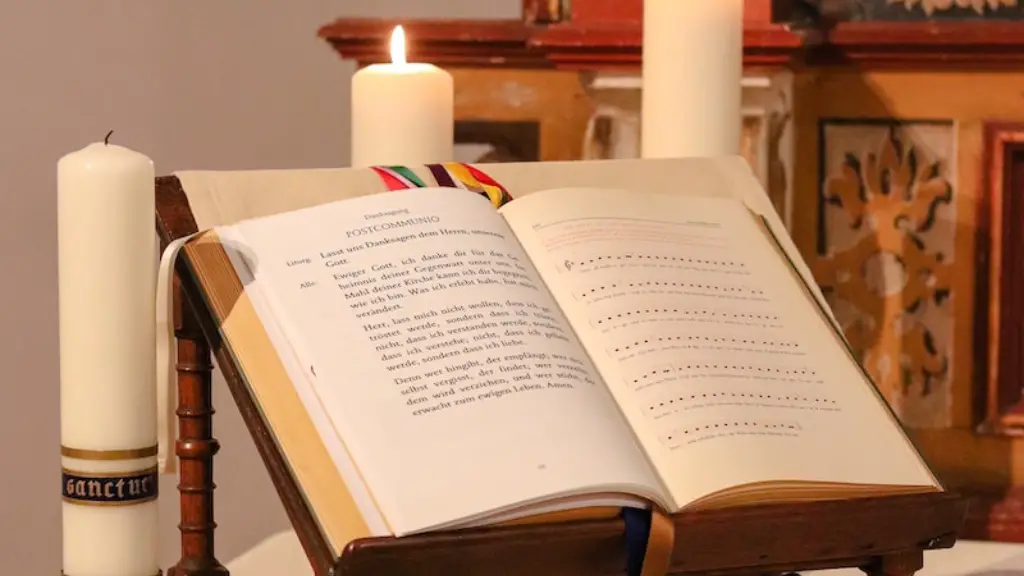The Bible is an incredible source of knowledge, filled with stories and characters that have captivated readers for centuries. One of the most important and highly-regarded characters of the Bible is Cyrus the Great. This prominent figure is regarded as a liberator in contemporary Judaism and Christianity and is mentioned in the Book of Isaiah.
Cyrus the Great was born in 590 BCE and ascended to the throne of the Persian Empire in 550 BCE. He is famously known for capturing Babylon in 539 BCE and by doing so, ending the Babylonian Empire and successfully executing the first recorded instance of nationalism. During his reign, Cyrus the Great set free political prisoners, including Jews in Babylon, and allowed them to return to Jerusalem, where Cyrus allowed them to rebuild the temple, something he found of great religious importance.
Historians have seen convincing evidence that Cyrus the Great was a generous ruler who worked towards peace-building and coexistence between religions. He issued an edict concerning human rights, which stated that no one should harm another based on faith. Moreover, Cyrus the Great issued regulations for the return of captives, even those from conquered peoples, regardless of their beliefs.
Cyrus the Great was a Persian emperor and a “king of kings” who was offered the same honor in Greek and Babylonian writings as he was in Jewish texts – this is due to his benevolent practices and efforts in improving the lives of those he conquered.Additionally, he was the first ruler to accept the idea of international diplomacy, wherein he forged alliances with other rulers and accepted global trade. This allowed the Persian Empire to become unrivaled as the largest empire in history.
In addition to his renowned political and military achievements, there is another aspect about his leadership which is particularly noteworthy. Cyrus the Great is credited with advancing numerous religious practices that predate him, including Zoroastrianism, the primary religion of ancient Persia. He is also mentioned in the Bible due to his role in liberating the Jews and permitting their return to the temple of Jerusalem. This is why he is remembered in Jewish faith as the “Messiah” and is considered by some to be the founder of Judaism.
The fact that Cyrus the Great was able to accomplish much and is remembered fondly by many is a testament to his greatness and to his revered standing. The legacy of Cyrus the Great is one of immense respect and admiration, globally, and it is clear why.
Impact Of Cyrus The Great On History
The impact of Cyrus the Great on the history of the world cannot be understated. Although he was a powerful military leader, many people regard him as a great humanitarian and one of the most progressive ancient rulers. By allowing for peaceful coexistence between disparate cultures and by allowing different religions to flourish, Cyrus the Great left a lasting legacy – one that modern-day leaders should learn from and emulate.
In addition to leaving a lasting legacy of peace, Cyrus the Great also helped shape the foundation of world history. Under his rule, the Persian Empire expanded its borders and reached incredible heights with its population, trade, and cultural exchange. His dedication to human rights and religious freedom are considered to be some of the earliest examples of such ideals.
Cyrus the Great’s campaigns and victory also helped to set a precedent for many other rulers to come. He used advanced tactics and strategy on the battlefield, while also benevolently defending those he conquered. His methods of warfare and his ideology have been studied by historians and military strategists for centuries, which shows the lasting impact he has had even today.
Cyrus the Great was also instrumental in developing the first recorded empire. He provided a framework for efficient and durable governance, one which enabled various states and peoples to become unified and that was also conducive to economic growth. His reign was a true example of how an emperor should conduct himself when it comes to ruling a diverse population.
Cyrus The Great And Human Rights Advocacy
Cyrus the Great is known for his influence on the protection of human rights and the practice of religious freedom. His legacy is present today in the form of efforts to create a more peaceful and equitable society. His edict regarding the humane treatment of captives and the right to freedom of religion show a dedication to principles of progress and justice. These principles can be seen in many of the documents used as a basis for modern humanitarian conventions.
Cyrus the Great’s commitment to human rights can also be seen in his acceptance of cultural exchange and global trade. His embrace of different cultures was a forward-thinking move that helped to foster respect and understanding between diverse groups. This attitude has had a significant influence on our society today, allowing us to experience a much richer and more vibrant world.
The freedoms and rights Cyrus the Great promoted during his rule are still reflected in many aspects of modern life. In particular, his commitment to religious freedoms and the protection of human rights have become a cornerstone of our society, and serve to remind us of the power of unifying our beliefs and respecting each other’s differences.
Cyrus The Great’s Influence On The Abrahamic Religions
Although Cyrus the Great was a Zoroastrian and a worshiper of Ahura Mazda, the primary deity of ancient Persia, he was also a ruler that respected other cultures and beliefs. Cyrus was a firm believer in the Jewish faith, and he implemented policies that allowed Jews the freedom to worship. In 538 BCE, Cyrus allowed the Jews to return to Jerusalem and rebuild the temple.
For this reason, many Jews have viewed him as a liberator and have come to regard him as the “Messiah”. This appreciation, combined with his other accomplishments, has earned him an important place in all the Abrahamic religions – Christianity, Islam, and Judaism – that trace their roots back to the region.
Cyrus the Great’s influence on the Abrahamic faiths cannot be understated. His role in liberating the Jews from Babylonian captivity and his dedication to religious freedom have had an immense impact, one that is still felt today. Long after his passing, religious scholars and historians continue to study his legacy and his commitment to the idea of religious tolerance.
Conclusion On Cyrus The Great’s Legacy
Cyrus the Great is a prominent figure in ancient history who has left an indelible mark on the world. His brilliant and innovative leadership made him a pioneering ruler in many disciplines, from war and politics to religion and culture. He is remembered for his incomparable military tactics as well as his dedication to tolerance, international diplomacy, and the protection of human rights.
In spite of all the changes to the world since his rule, the legacy of Cyrus the Great lives on – and will continue to inspire possible leaders for centuries to come.




